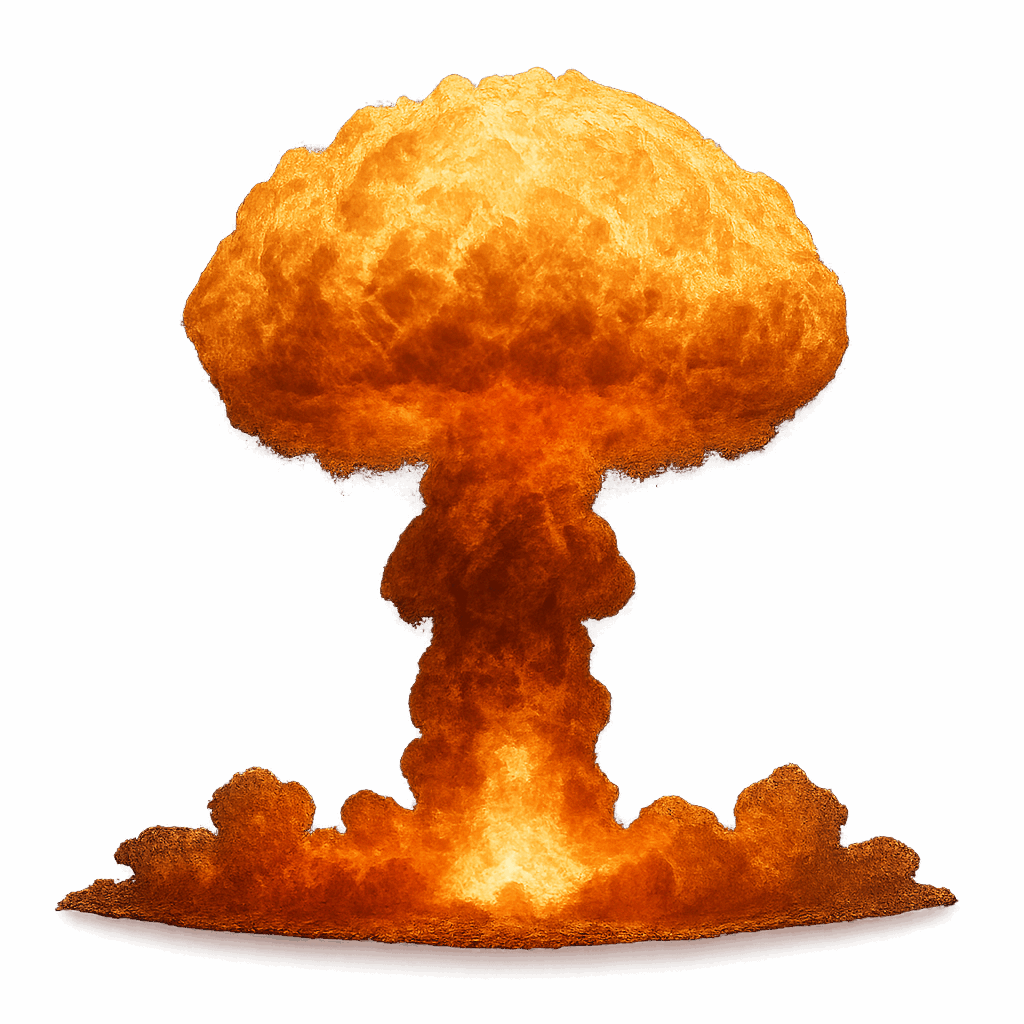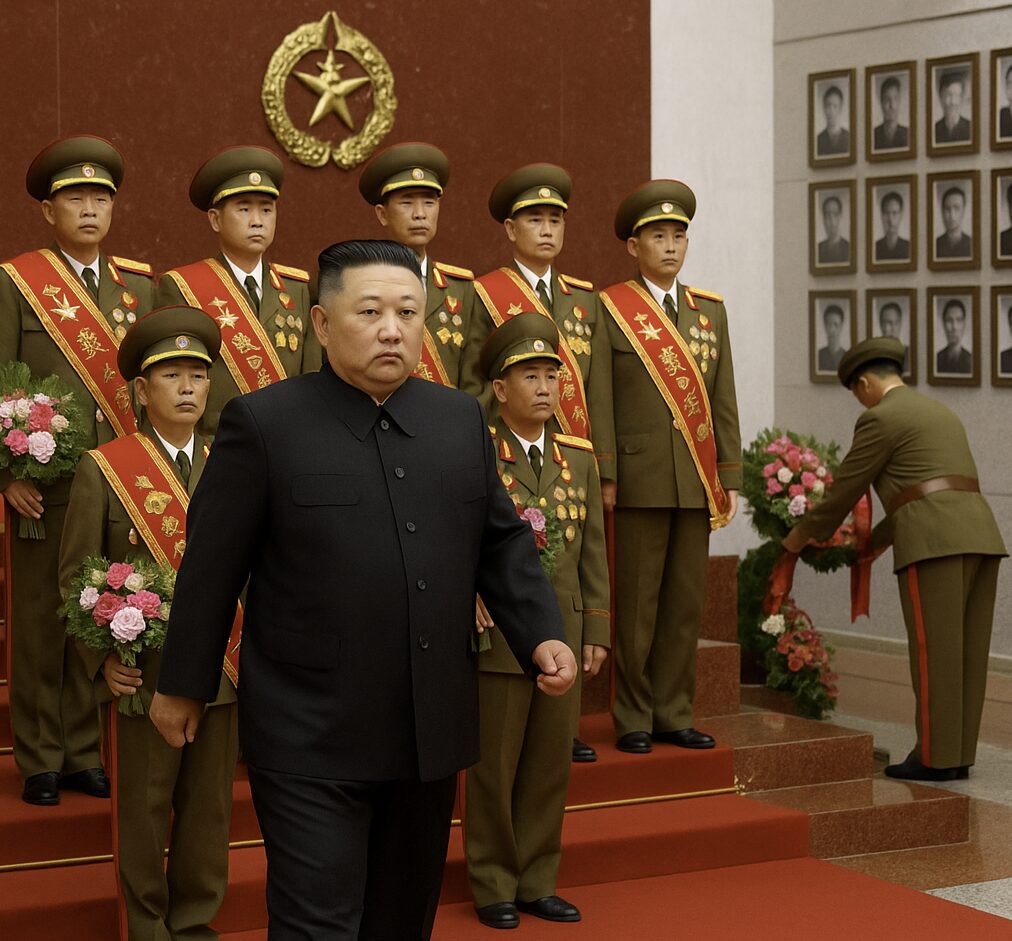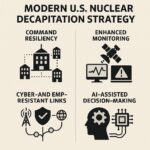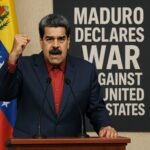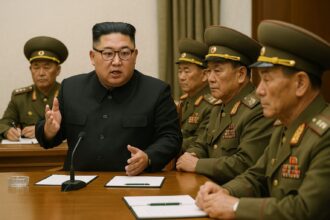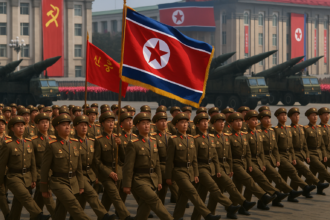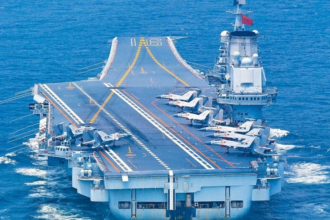PYONGYANG, August 25, 2025 — North Korean leader Kim Jong Un awarded top state honors to Korean People’s Army troops involved in undisclosed overseas military operations, state media reported on Sunday. At a ceremony in Pyongyang, Kim presented medals, including the “Hero of the DPRK” title, to soldiers and posthumously honored those killed, while meeting their families and leading a moment of silence. KCNA gave no details on the locations or objectives of the operations, and the claims could not be independently verified. Analysts say the rare acknowledgment signals North Korea’s possible foreign deployments as Pyongyang seeks to boost military prestige and project strength amid rising regional tensions.
Ceremony Overview
Senior officials from the Workers’ Party of Korea (WPK), the Ministry of National Defence, and the country’s top military commanders gathered on August 25, 2025, in Pyongyang for a rare, high-profile state ceremony honoring Korean People’s Army (KPA) troops involved in undisclosed overseas operations. The event was held at the WPK Central Committee headquarters, where banners and portraits of past leaders adorned the grand hall, underscoring the political and symbolic weight of the occasion.
Dozens of families of fallen soldiers were invited to attend, with officials recognizing the sacrifices made by those who did not return. Prior to the awards, the DPRK’s national anthem was performed as attendees stood in silence, creating a solemn atmosphere meant to emphasize national pride, military unity, and loyalty to the state.
Kim Jong Un’s Address
During the ceremony, Kim Jong Un, serving both as General Secretary of the WPK and President of the State Affairs Commission, delivered a keynote speech commending the participating troops. He praised their loyalty, endurance, and “unwavering dedication” to their duties during overseas missions, despite what he described as “extreme hardships and mortal danger.”
Kim referred to the troops as “heroes”, asserting that their actions protected the sovereignty, dignity, and prestige of the DPRK. He stressed that their accomplishments represent the “unbroken spirit” of the Korean People’s Army, claiming that their success in these missions reflects the strength of North Korea’s leadership and its military readiness.
Among the highest honors awarded was the “Hero of the DPRK” title, conferred on select individuals who, according to Kim, demonstrated “exceptional bravery and sacrifice.” Alongside these prestigious decorations, additional medals and commendations were distributed to other soldiers who contributed significantly to the missions. Kim also led a moment of silence for fallen soldiers and personally met with the families of those killed in action, offering condolences and presenting awards in their honor.
Posthumous Honors
The ceremony also paid tribute to soldiers who died during the overseas operations. Medals were presented posthumously, and portraits of the deceased were displayed prominently at the venue. Kim personally greeted the families of fallen soldiers, offering condolences and assurances that their loved ones’ sacrifices would be remembered as part of the “historic legacy of the Republic.”
During a moment of silence, Kim and senior officials bowed before memorial wreaths, symbolizing respect and national gratitude. State media later described the atmosphere as “solemn yet celebratory,” blending recognition of loss with an effort to project resilience and strength.
Strategic Significance
The ceremony marks one of the few public acknowledgments by North Korea of its forces’ participation in foreign military operations, though the government avoided specifying where or against whom these battles were fought. Analysts say the recognition serves several purposes:
-
Boosting Domestic Morale – By honoring the troops, the regime reinforces loyalty among military ranks.
-
Demonstrating Military Strength – The event signals that the KPA remains active beyond North Korea’s borders.
-
Consolidating Power – Kim Jong Un continues to position himself as the central figure leading both military and political victories.
Context & Unanswered Questions
North Korea rarely provides verifiable details about its overseas military activities. International observers note that, in recent years, Pyongyang has reportedly sent military personnel or advisors to various regions, but independent confirmation is limited.
The ceremony underscores the regime’s ongoing efforts to frame its military operations as a source of national pride while maintaining secrecy around operational specifics.
